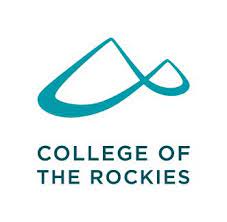Intake in Australia for International Students 2023: Timeline, Courses, Universities Requirements
6 mins read 2386 Views
By Prabhadri Suman|Updated On - 2023-07-11 06:53:10
Check out the Australia intake, university deadlines, requirements, and top universities for studying in Australia in 2023. Embark on a successful application journey with the step-by-step timeline.

Topics Covered:
- Intakes in Australia
- Choosing the Right Australia Intake: February or July?
- Timeline to Apply in July Intake Australia 2023
- Admission Requirements and Documents for Australia Intake 2023
- Step-by-Step Application Timeline for Australia Intake in 2023
- Top Universities and Courses in Australia
- Conclusion
Australia continues to be a highly sought-after destination for international students, offering a world-class education system, globally recognized degrees, and a vibrant student life. With its growing popularity, prospective students need to understand the intake process, deadlines, and requirements for studying in Australia in 2023. This comprehensive guide will delve into the different intakes available, explore the top universities and courses, discuss the necessary documents, and provide a step-by-step timeline for a successful application process. So, let's embark on this journey and discover the opportunities that await you in Australia!
Intakes in Australia
Australian universities typically offer two major intakes for international students: the February and July intake. The February intake is the main intake and covers a wide range of courses almost every university in the country offers. It begins in February and provides ample opportunities for scholarships and financial aid. On the other hand, the July intake, although limited in the number of universities and courses available, still offers viable options for international students.
It's worth noting that there are also September and November intakes, but they have a minimal selection of courses. Additionally, vocational courses may have intakes in May, July, or January. Each intake has its own specific deadline, which varies depending on the university and the course you are applying to. Let's take a closer look at the application deadlines for the major intakes:
| Intake | Deadline |
| February | October-November |
| July | April-May |
| September | Varies per university |
| November | Varies per university |
While these deadlines provide a general guideline, it's crucial to visit the official websites of the universities you are interested in to ensure you have the most up-to-date information.
Here are the major intakes available in Australia:
|
Intake
|
Type |
Application
Season |
Programs Availability | Number of Applications |
| February Intake | Primary | A lot of of applications | All Programs | Various types of scholarships and financial aid |
|
July
Intake |
Primary | Number of applications is less than February | Majority of Programs | Limited number of scholarships and financial aid |
| November Intake | Primary | Very limited applications | Minor, least popular as there are selected programs | Less than July intakes |
| Semester 1 Intake | Secondary | Primary intake season | All Programs | Various types of scholarships and financial aid are available. |
| Semester 2 Intake | Secondary | Secondary intake season | Majority of Programs | Very limited scholarships and financial aid |
| Semester 3 Intake | Secondary | Secondary intake season | Limited universities are available less popular | Limited scholarships and financial aid |
Choosing the Right Australia Intake: February or July?
When choosing the best intake for you, several factors should be considered. The February intake is undeniably more favorable as it offers a wider range of courses and facilities than the July intake. However, the availability of courses and your personal circumstances should also influence your decision.
To make an informed choice, you should evaluate your academic history, examination results, program availability, financial resources, and personal suitability. Consider consulting with education counselors, researching the universities and courses that align with your goals, and gathering insights from current or former international students studying in Australia. You can determine the most suitable intake for your academic journey by carefully weighing these factors.
Timeline to Apply in July Intake Australia 2023
| Month | Activity |
| October/ November | Shortlist universities that align with your interests |
| December/ January | Gather all the necessary documents and take the entrance exams. |
| February/ March | Apply to the university of your choice |
| March/ April | Prepare for the university interview and get ready to accept the offer letter |
| April/ June | Apply for the Australian student visa (Sub Class 500) |
| June/ July | Book your airline tickets and embark on your educational adventure to Australia. |
Admission Requirements and Documents for Australia Intake 2023
Before applying to Australian universities, it's crucial to understand the admission requirements and gather the necessary documents. While specific requirements may vary depending on the university and program, here are some common documents that are typically required for admission:
- Academic Transcripts: Academic Transcripts include your high school or undergraduate academic records, demonstrating your educational background and achievements.
- Standardized Test Scores : Depending on the program and university, you may need to provide scores from standardized tests such as the GRE (Graduate Record Examination) or GMAT (Graduate Management Admission Test).
- Academic Qualification : A high school diploma or equivalent is generally required for undergraduate programs. For postgraduate programs, a bachelor's degree or equivalent is typically necessary.
- Passport and Student Visa : A valid passport is essential for international students and a student visa (Subclass 500) to study in Australia. The visa application process should be initiated once you receive an offer of admission.
- Higher Secondary Certificate : This is required for undergraduate programs and serves as proof of completion of secondary education.
- Letters of Recommendation : Some universities may require letters of recommendation from teachers, professors, or employers who can attest to your academic abilities and potential.
- Proof of Financial Resources: You must demonstrate that you have sufficient funds to cover your tuition fees, living expenses, and any other related costs during your stay in Australia.
It's important to note that these requirements may vary, so it's essential to refer to the specific admission guidelines provided by each university.
Interested in studying abroad? Our Experts will evaluate your profile for FREE
Step-by-Step Application Timeline for Australia Intake in 2023
To help you navigate the application process smoothly, we have outlined a step-by-step timeline for the Australia intake in 2023. This timeline provides a general framework, but please remember that it may vary depending on the university and program you are applying to. Here are the key steps to follow:
- Begin Now : Australian universities often operate on a first-come, first-served basis. Start researching and shortlisting universities based on your profile and interests. Be sure to check each university's website for any updates or changes to their application process.
- Examination : Take any required standardized tests, such as the GMAT , GRE, IELTS , or TOEFL . Be aware of the exam dates and give yourself enough time to prepare and retake the exams if necessary.
- Apply to Colleges : Complete the application forms for your chosen Australian universities . Ensure to provide accurate and up-to-date information, and pay attention to any additional requirements or essays that may be required. Contact your professors or supervisors for letters of recommendation if needed.
- Interviews and Acceptance Letters : Universities may conduct interviews as part of the application process. Prepare for these interviews by researching the university, understanding the program requirements, and showcasing your passion and motivation. Once you receive an acceptance letter, respond promptly to secure your place.
- Student Visa Application : Apply for a student visa (Subclass 500) as soon as possible after receiving your acceptance letter. Familiarize yourself with the visa requirements, gather the necessary documents, and submit your application online. Allow sufficient time for visa processing.
- Travel Arrangements: Once your visa is approved, make your travel arrangements, including booking your flight tickets and arranging accommodation in Australia. Take note of any quarantine or health requirements due to the ongoing COVID-19 pandemic.
- Orientation and Enrollment : Attend orientation sessions organized by your university to familiarize yourself with the campus, academic resources, and student support services. Complete enrollment by submitting required documents and paying your tuition fees.
- Begin Your Study Abroad Journey : Pack your bags, bid farewell to your loved ones, and embark on your study abroad journey in Australia. Immerse yourself in the vibrant student life, explore the diverse culture, and seize every opportunity for personal and academic growth.
Remember to stay organized, keep track of deadlines, and communicate with university officials or education consultants for any guidance or assistance throughout the application process. Your journey to studying in Australia begins with thorough preparation and a proactive approach.
Top Universities and Courses in Australia
Australia is home to numerous prestigious universities offering a wide range of courses across various disciplines. Here are some of the top universities in Australia known for their academic excellence and research programs:
- The University of Melbourne
- The University of Sydney
- Victoria University
- Curtin University - Australia
- Monash University
- Deakin University
- The University of Queensland
- RMIT University
- The University of Adelaide
These universities are renowned for their commitment to providing quality education and a supportive learning environment for international students. However, it's important to research each university's specific offerings, faculty expertise, and alumni success stories to find the best fit for your academic and career aspirations.
When it comes to choosing a course of study, Australia offers a diverse range of options. Here are some popular bachelor's and master's courses to consider:
Bachelor's Courses:
- Accountancy
- Applied Finance
- Pharmacy
- Actuarial Studies
- Agriculture Science
- Business Studies
- Law and Paralegal Studies
- Core Engineering
- Information Technology
- Exercise and Sports Science
- Veterinary Education
Master's Courses:
- Engineering
- Art and Design
- Nursing
- Social Work
- Veterinary
- Medical
- Computer and Information Technology (IT)
- Education and Teaching
- Automotive
- Construction
- Tourism and Hospitality Management
These courses cater to a wide range of interests and career paths, ensuring that you can find a program that aligns with your goals and aspirations.
Conclusion
Studying in Australia offers a rewarding and enriching experience for international students. There are immense opportunities to pursue your academic and career aspirations, from world-class universities to diverse course offerings. Understanding the different intakes, meeting the admission requirements, and following a well-planned application timeline can pave the way for a successful study abroad journey. Remember to stay proactive, seek guidance when needed, and embrace Australia's vibrant and multicultural environment. Good luck with your Australian adventure!
The Edmissions team is here to provide you with help throughout the college application process. Before you submit your application to your desired college or university, it is recommended that you get in touch with a Edmissions specialist by registering on the website edmissions.com .
To learn more about application processing, contact our Edmissions specialists at
[email protected]
.
For a quick overview related to study abroad, Click here
Latest Blog Posts
Trending Posts

Exam
2023-07-10 06:07:22
13285 Views
Popular Colleges to Study Abroad
Blog FAQ's
Top Study Abroad Exams
Popular Universities to Study Abroad
- University of Waterloo
Waterloo
- University Canada West
Vancouver
- University of Windsor
Windsor
- Cape Breton University
Sydney
- Dalhusie University
Halifax
- Carleton University
Ottawa
- University of Ottawa
Ottawa
- University of Guelph
Guelph
- Explore more colleges in Canada
- University of New Haven
West Haven
- Kent State University
Kent
- Wright State University
Dayon
- San Jose State University
West Haven
- Clark University
Worcester
- Rowan University
Glassboro
- Golden Gate University
San Francisco
- Arkansas
San Francisco
- Explore more colleges in USA
- Coventry University
Coventry
- University of Birminghame
Birminghame
- De Montfort University
Leicester
- Cardiff University
Cardiff
- BPP University
London
- University of West London
London
- University of Nottingham
Nottingham
- University of Warwick
Coventry
- Explore more colleges in UK
- Auckland Institute Of Studies
Auckland
- Massey University - Auckland Campus
Albany
- Eastern Institute of Technology - Auckland Campus
Auckland
- NorthTec - Auckland Campus
Auckland
- Massey University - Manawatu Campus
Palmerston North
- University of West London
London
- Wellington Institute of Technology (WelTec) - Petone Campus
Lower Hutt
- Otago Polytechnic - Dunedin Campus
Dunedin
- Explore more colleges in New Zealand
- Chandigarh University
Mohali
- Parul University
Vadodara
- Sharda University
Greater Noida
- Jain University
Bangalore
- Bennett University
Greater Noida
- Lovely Professional University
Phagwara
- Chitkara University
Rajpura
- Brainware University
Kolkata
- Explore more colleges in India
- Abu Dhabi University
Abu Dhabi
- Gulf Medical University
Ajman
- New York University
Abu Dhabi
- Emirates Aviation University
Dubai
- Higher Colleges of Technology
Dubai
- British University in Dubai
Dubai
- Al Ghurair University
Dubai
- American University in the Emirates
Dubai
- Rochester Institute Of Technology Dubai
Dubai
- Emirates Academy of Hospitality Management
Dubai
- American University of Ras Al Khaimah
Ras Al Khaimah
- Explore more colleges in UAE
- Ras Al Khaimah Medical and Health Sciences University
Ras Al Khaimah
Search, Shortlist, Apply and get accepted! It’s that Simple to pursue your dream to Study abroad with Edmissions. Our team of experts provide you the right guidance that helps you to take admission in your dream college in countries like Canada, the USA, the UK
© 2021-2024 Edmissions - All rights reserved.
TALK TO OUR EXPERTS








